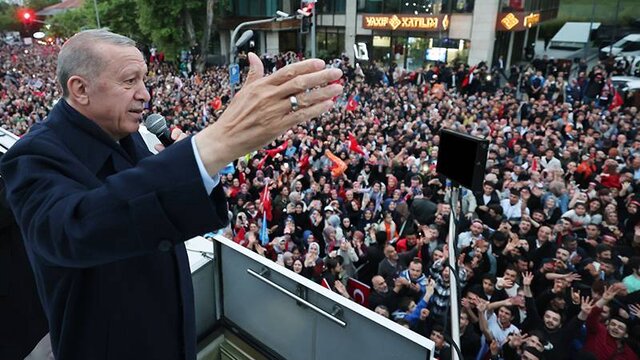The main result of the recent presidential elections in Turkey is not the victory of Recep Tayyip Erdogan over Muharrem Ince, but the fact that, first, they were competitive and fair, and, second, their results were recognized by both the winners and the losers.
As we mentioned earlier, the main risk of these elections for Turkey was the possibility of either descending into civil war or turning into a dictatorship. Erdogan’s main achievement was to prevent this from happening. Despite the power he has, he did not abuse it; instead, he participated in competitive elections, took the risk of a second round, and won a fair victory.
It turns out that when a ruler has genuine popular support, it is not necessary to execute opposition politicians in the main square, or poison their underwear, or prevent potentially dangerous competitors from participating in elections, or manipulate millions of votes through electronic voting. It turns out that it is simply possible to compete fairly over and over again and emerge victorious, as Erdogan has done so far.
When it comes to the election results themselves, however, it is hard not to notice that Erdogan’s victories are getting harder every time. In the 2018 presidential election, he won in the first round with 52.59 percent, while his main rival, Muharrem Ince, who was considered a strong candidate, received only 30.64 percent. This time, Erdogan needed a second round to win, and his opponent Kemal Kilicdaroglu, who was clearly weak, managed to get 47.86% compared to Erdogan’s 52.14%. In other words, Erdogan won by less than 5%. It’s on the edge…
Considering Erdogan’s statement that this is his last presidential election, Turkey will face no less serious dilemmas in the next elections. The ruling party may be able to nominate and promote a strong, young and charismatic successor to Erdogan who will confidently win the elections, just as Erdogan did in the past. However, there is a risk that the opposition will field a stronger candidate in the next elections, while the ruling party may lack one. And then what?
Some of our readers in Turkey were ready to pack their bags if Kemal Kilicdaroglu won, fearing an anti-religious backlash. This is despite the fact that conservative parties, both in the ruling coalition and in the opposition, already hold about 60% of the seats in parliament. This is because the 2016 constitutional reform gives the president such powers that he can rule against the parliamentary majority. This means that whoever wins the presidential elections wins almost everything, and whoever loses, loses almost everything.
It turns out that whether people pack their bags or not depends on just a few percentage points. Therefore, it is our sincere wish that a united Turkey will reach a system in which the rights and interests of its citizens, especially Muslims, will be protected in such a way that they will not have to sit on their suitcases before the elections, but will be able to watch the results as if they were watching an exciting soccer match.
Recep Tayyip Erdogan has shown enough responsibility not to condemn Turkey to civil war or dictatorship based on the results of these elections. Let’s hope that he will use the remaining time of his presidency to build a country where such a dilemma does not exist before every election.

